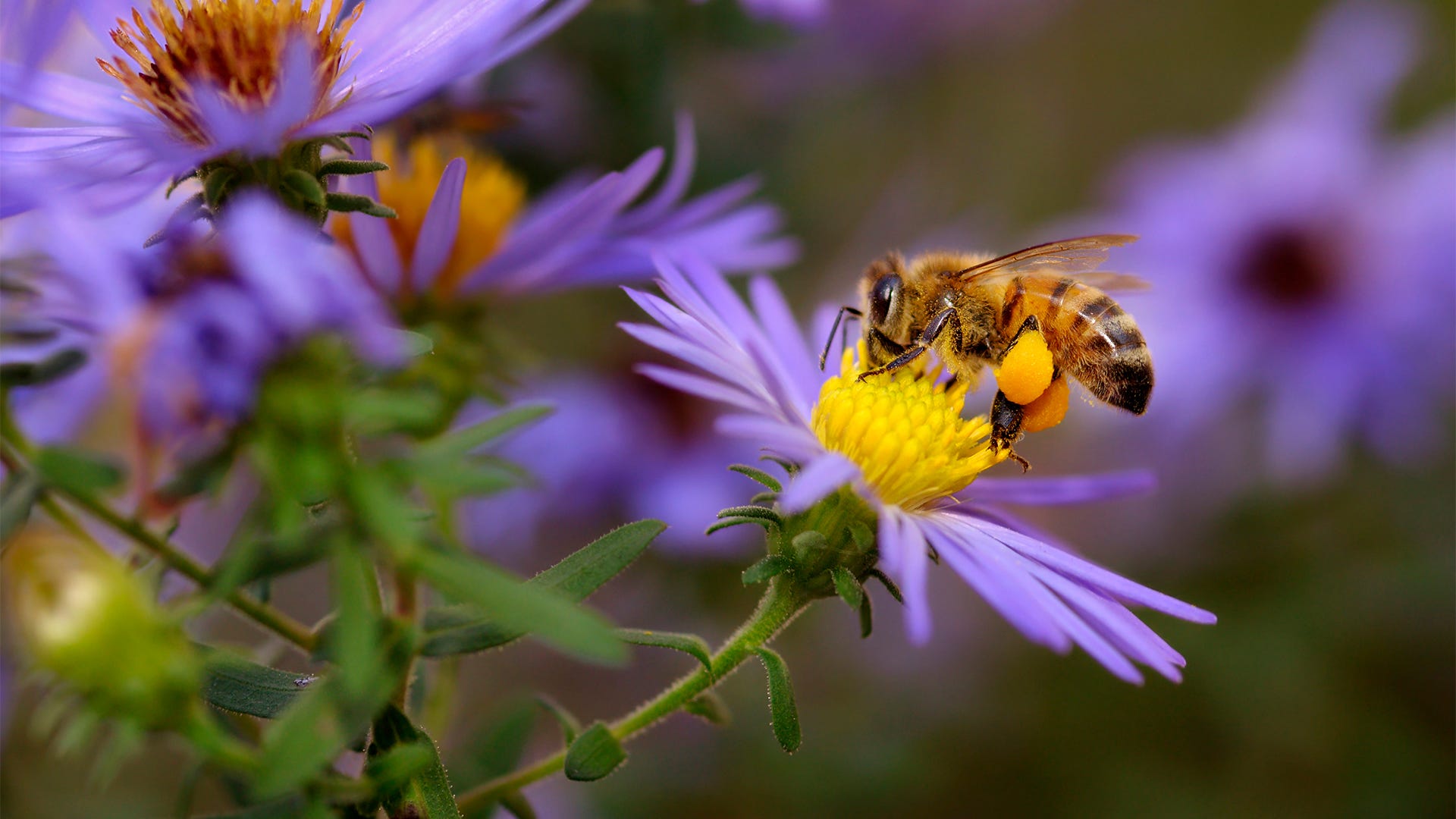
There is a lot of buzz about the bee population and its rapid decline. What is causing the decrease in the bee population and what can we do to stop it? How does this affect our environment and us? Check out the information we’ve found below. The bee is an amazing part of our agriculture community, and one we should give more thought to.
First we need to understand what honeybees do that is so important to nature – pollination. Pollination is the process in which pollen is transferred from the anther (male portion of the plant) to the stigma (the female portion of the plant). Some plants are able to self-pollinate while other plants need pollen to transfer between different flowers or different individuals of the plant, this is known as cross-pollination. Generally plants are pollinated through the use of wind or animals/insects.
Bees are underestimated little agriculture workers that are busy aiding in the process of cross-pollination. According to the U.S. Department of Agriculture, bees pollinate 80% of our flowering crops which constitute a third of everything we eat. A Cornell study supports this staggering statistic, noting that an estimated $14 billion worth of seeds and crops are pollenated by the bee population.
The crops that bees are helping to keep alive are often covered with substances that kill bees. Pesticides, protecting the plants from disease and damaging bugs, are laced with chemicals that are harmful to the bee population. To manage this issue, many farmers were relocating bees from their natural environments to assist in their farm pollination, which created a lack of wild bees in their population.
How do we manage this situation? Better communication for the public and the agriculture community is crucial in making sure that education is offered on the proper practices used for keeping bees thriving. Using Safer® Brand products, many of which are compliant for use in organic gardening, rather than chemicals, is a step in the right direction.
Gardeners can provide plenty of food for bees by planting their gardens with them in mind. Additionally, featuring water in your garden can provide a clean and safe source of hydration for them. Together, we can all take steps to help the bee population, and the overall success of agriculture.
What do you do to provide safety for bees? Tell us in the comments below!



